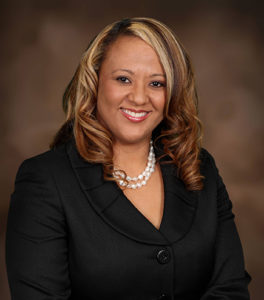Social distancing is complicating the grief process for those who have suffered loss during the COVID-19 pandemic.
Pastors say they are seeing the pain of loss being compounded by the inability of loved ones to attend funerals or embrace each other for mutual comfort.

Greg DeLoach
Their agony is intensified by other losses, such as social interaction, mobility or by simple things like being able to go out to eat, said Greg DeLoach, a veteran Baptist pastor and interim dean at Mercer University’s McAfee School of Theology in Atlanta.
“You can’t suitably invite others to join in that grief,” he said, which “just compounds the grief and everything is exacerbated in light of this.”
It isn’t easy for clergy, either.
“We can’t be by their side and that’s a struggle not to be able to visit with a family and to offer our support,” said LaTonya Penny, senior pastor at New Mount Zion Missionary Baptist Church in Roxboro, North Carolina.
“It’s been a struggle for me to adjust to that,” she said.
Penny said she decided not to officiate a March 27 funeral because gathering size restrictions would have prevented a family member from attending.

LaTonya McIver Penny
“Me being there is not important. It’s not about me,” she said. “It’s about making sure they all have space for everyone in the family to be there and follow the regulations of the funeral home.”
Penny emphasized the importance of following social distancing guidelines even when it’s not as comforting to those who are grieving.
She added that it can be a balancing act for pastors.
“I’m trying to be a role model for the church and show social distancing and show how we can be the church during all of this,” Penny said.
Grief can be further exacerbated in cases where loved ones are dying alone, said Candi Cann, associate professor of religion at Baylor University in Waco, Texas.
“Loved ones left behind will struggle with the fact that a loved one died by themselves without anyone with them,” Cann said. “I definitely think it’s going to make for traumatic grief.”

Candi Cann (Photo/Baylor University)
Many are dying alone because of the strict protocols in hospitals regarding sterility and health, she said.
But there are ways to support grieving individuals that comply with social distancing practices.
Cann said sending cards, flowers and meals are still feasible, safe options. She said there are even modern, technological approaches for finding support groups.
“People need to stay connected,” she said.
DeLoach urged pastors to take the initiative by communicating with grieving individuals to discern how others can be directed to help. Often, those going through grief feel overwhelmed by an influx of phone calls.
“The pastor can in many ways be the gatekeeper and the permission giver for people that help channel caregiving to a loved one,” he said. “There’s no equivalent of a kind and tender touch, whatever that might look like.”
Penny said she is offering phone calls to grieving members.
“If you want to cry or whatever, this is your time tomorrow for me to listen and offer support,” Penny said.
“No, I can’t give you a hug, but know that I’m sending all my love as much as I possibly can.”
EDITOR’S NOTE: BNG is committed to providing timely and helpful news and commentary about ways Christians and churches are responding to the coronavirus pandemic. Look for the hashtag #intimeslikethese. You can also use this form to help us identify compelling stories of faith and ministry in these challenging times.
Read more BNG news and opinion on this topic:
#intimeslikethese
